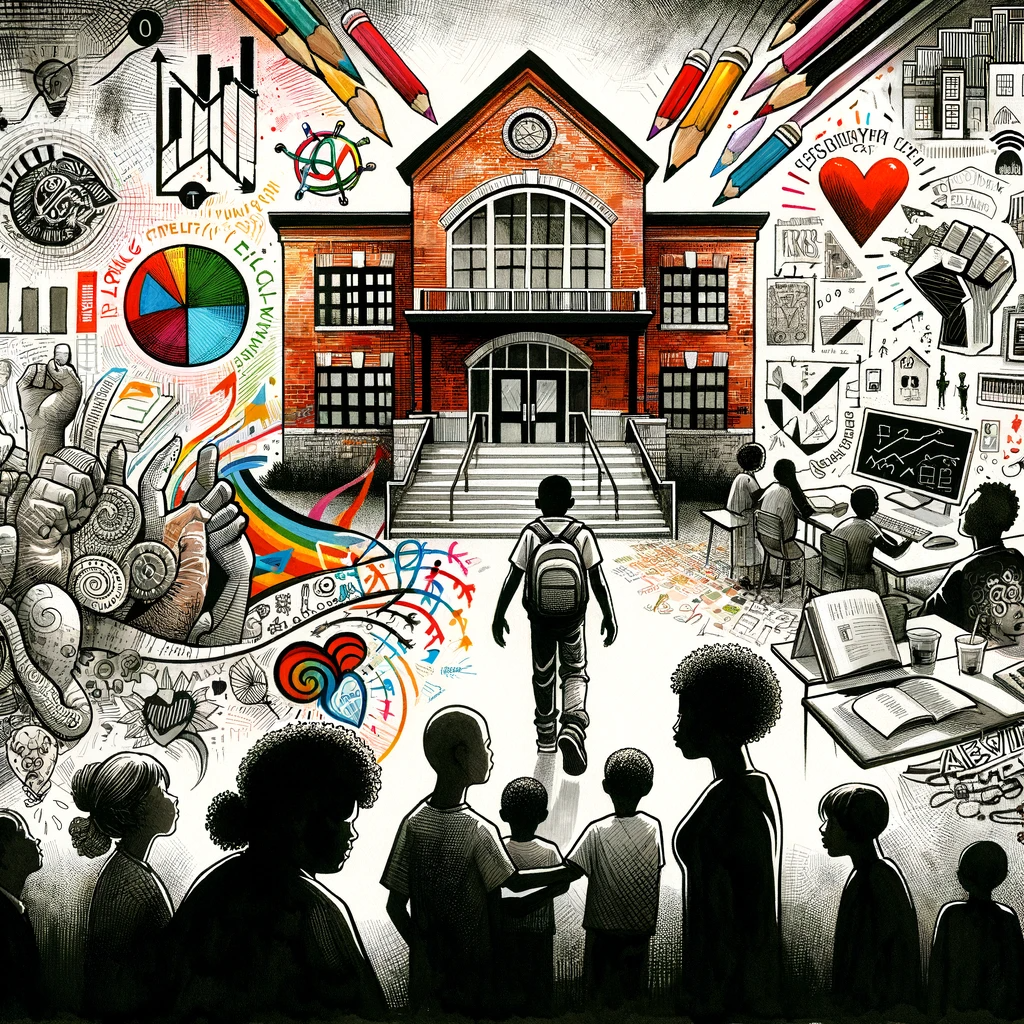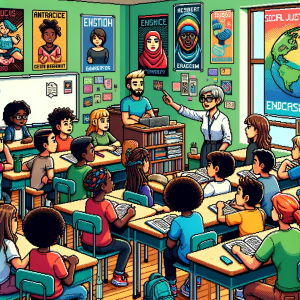
The Impact of Racism on Child Development and the Path Forward for School Mental Health Professionals
Racism, a deeply ingrained social issue, has profound effects on children’s development, particularly among racially and ethnically minoritized (REM) communities. On this MLK Day in the US, it’s worth taken a step back and really thinking through how race impacts development.
The article “Effects of Racism on Child Development: Advancing Antiracist Developmental Science” (accessible here) delves into this critical subject, examining how racism influences REM children’s growth and learning.
The Far-Reaching Effects of Racism
Racism, in its various forms, detrimentally impacts children even before birth. It influences economic stability, community environment, birth outcomes, and educational opportunities. For instance, children from REM backgrounds often face economic instability and live in neighborhoods lacking essential resources, both of which can hinder their development. These adversities are compounded by the dual pandemics of racism and COVID-19, which have disproportionately affected REM communities, amplifying existing disparities.
Racism in Educational Settings
Schools are not immune to the impact of racism. REM students often face biased treatment, including higher suspension rates and lower expectations. This affects their academic performance, mental health, and self-esteem. School psychologists must recognize these challenges and work towards creating an inclusive and supportive educational environment.
The R3ISE Integrative Model
A promising approach to understanding and addressing these issues is the Racism + Resilience + Resistance Integrative Study of Childhood Ecosystem (R3ISE) model. This framework underscores the importance of considering cultural assets in REM families and communities. It emphasizes the need for developmental science to focus on antiracist policies and practices, crucial for mitigating the impacts of racism on child development.
1. Racism: Acknowledging the Multidimensional Challenge
- Systemic and Cultural Racism: R3ISE acknowledges that racism transcends individual prejudices and is embedded in societal structures and cultural norms. This systemic nature of racism means that REM children face barriers in various forms – from unequal access to quality education and healthcare to biased representations in media and literature.
- Interpersonal Racism: On a personal level, REM children often encounter direct racial discrimination. This can manifest in schools as lower expectations from teachers, unfair disciplinary actions, or exclusion from certain activities.
2. Resilience: The Power of Cultural Assets
- Family and Community Strengths: The R3ISE model emphasizes the resilient aspects of REM families and communities. These include strong kinship bonds, rich cultural traditions, and diverse linguistic backgrounds. Such assets are crucial buffers against the adverse effects of racism.
- Schools as Sites of Empowerment: For school psychologists, this model aspect suggests the importance of nurturing an environment where these cultural assets are recognized and valued. Integrating culturally responsive practices in the curriculum and school activities can enhance students’ sense of belonging and self-worth.
3. Resistance: Advocating for Change
- Policy Advocacy: Resistance in the R3ISE model refers to actively pursuing antiracist policies and practices. School psychologists can play a pivotal role in advocating for policy changes that address systemic inequalities affecting REM students.
- Empowering Students and Families: Encouraging self-advocacy in students and engaging families in school decisions can foster a sense of agency, helping to combat the feelings of helplessness that racism often instills.
Implications for School Psychologists
For professionals in school mental health, this research underscores the need for a holistic approach. Understanding the multifaceted nature of racism and its effects on students is crucial. Interventions should address the symptoms and the root causes of these disparities. Promoting policies that support equity in education and mental health resources is essential.
Moving Forward
The challenge for school psychologists and other mental health professionals is integrating these insights into their practice. This involves advocating for policies that support equity and inclusion, creating environments that recognize and value cultural diversity, and implementing strategies that address the unique challenges REM students face.
Conclusion
The article “Effects of Racism on Child Development: Advancing Antiracist Developmental Science” offers a comprehensive look at how racism affects child development and the crucial role of antiracist developmental science. For school psychologists, it’s a call to incorporate these insights into their work, ensuring that every child can thrive in a supportive and inclusive educational environment.
Step into the Future of School Psychology!
Engage with the dynamic field of educational mental health for only $5 monthly. This Week in School Psychology offers you a gateway to understanding and applying crucial psychological findings. Enjoy concise, powerful updates that make a difference. Subscribe and join a community dedicated to knowledge and impact. Take advantage of our special yearly rate and lead the way in educational innovation!



